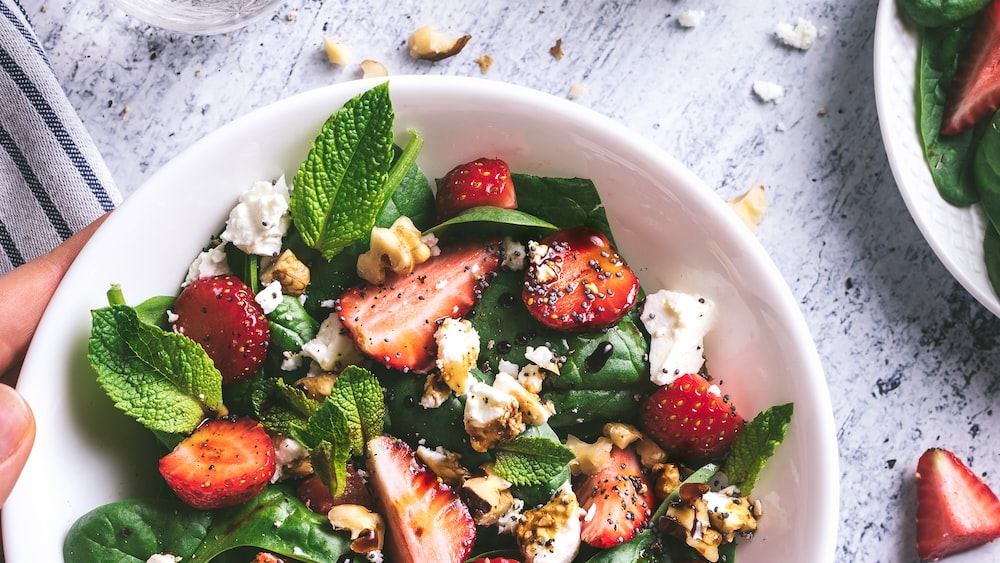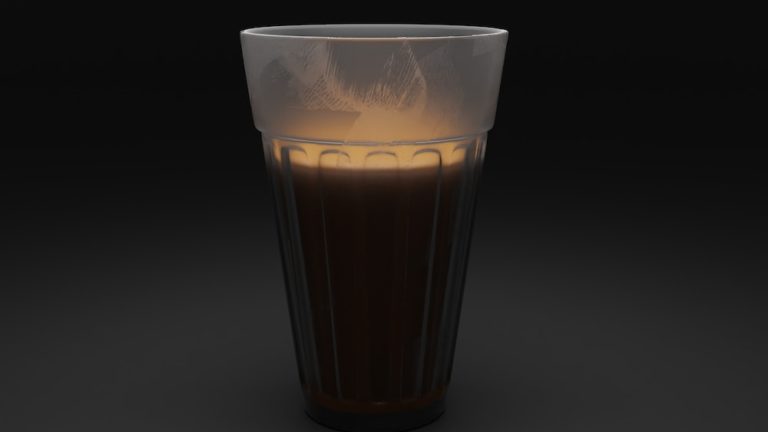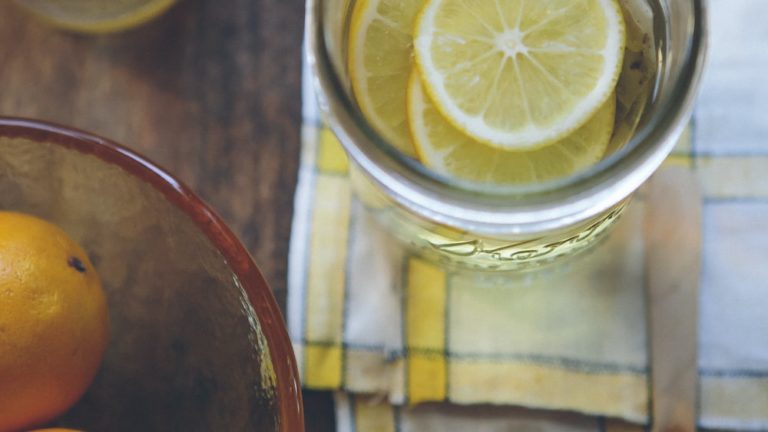Is Matcha Tea Good For Acid Reflux? Discover The Benefits

Is Matcha Tea Good For Acid Reflux? Discover The Benefits
Ah, tea, our favourite liquid courage, right after water, of course! For many, it’s a daily ritual as vital as oxygen and for some, the giddy anticipation of a new tea variety is comparative only to a child unwrapping their festive presents. For you, the ever-curious and health-conscious individuals, we’d be stirring up a little Matcha magic in our teacups today. So, people with Acid Reflux or GERD, this is a ‘sip-in’ you wouldn’t want to miss!
Ever had moments where the festering heartburn rudely interrupted your sweet serenade with food? Or instances where a gulp felt like clearing an obstacle course? Well, you might just be one of the 20% of adults dealing with the pesky case of acid reflux. We’ve heard of matcha tea as the bright green superpowder sweeping off the health enthusiasts off their feet. But can this potent concoction prove to be a soothing rain on the fiery acid reflux parade? Let’s dive right in, shall we?
Through the looking cup, we’d explore the tumultuous sea known as acid reflux, the role of diet in taming the daunting waves, and then finally anchor at the green, serene shores of Matcha. Grab your curiosity caps, hold onto your cups, tea enthusiasts, as we set sail on this tea-rrific journey!
Understanding Acid Reflux
Before we launch headfirst into the deep end, it’s crucial we understand the basics of this turbulent riptide. So what’s this acid reflux fuss all about?
What is Acid Reflux?
Imagine you are at a rock concert, banging your head to the music, I mean literally, because that’s what acid reflux feels like: your stomach’s harsh acids headbanging against walls of your esophagus. It’s as if your stomach decided to have a raging party and your poor esophagus bore the brunt. Doesn’t sound like music to the ears, right?
Now clinically speaking, Acid Reflux (heartburn) is a common digestive condition where stomach acid flows back into the tube that connects your throat to your stomach – your esophagus. This backward flow occurs when the lower esophageal sphincter, a ring of muscle at the entrance of your stomach doesn’t close tightly enough after you’ve swallowed. Trust us, it feels just as uncomfortable as it sounds.
The piece de resistance in this melodrama is what’s known as Gastroesophageal reflux disease (GERD), a more severe, chronic form of acid reflux. Showcasing symptoms more frequently than twice a week? You might be the not-so-lucky lottery winner of GERD.
Acid reflux is like a rock concert in your stomach, with harsh acids headbanging against the walls of your esophagus, caused by the lower esophageal sphincter not closing tightly enough after swallowing.
Common Causes of Acid Reflux
Time to turn our magnifying glasses on to the uninvited guests at the acid party, shall we? Let’s sneak a peek at what’s setting the stage for this acid uprising.
Ever heard of Hiatal hernia? No, it’s not an exotic salsa dance step, but rather a stomach abnormality that is one of the leading causes of acid reflux. This knot in the gut tends to affect individuals over 50, but youngsters, don’t you dare breathe a sigh of relief yet!
Next up, certain lifestyle choices such as smoking, drinking and laying horizontal post meals could raise the acidic rave. Tsk tsk, finger-wagging at those who habitually resort to overeating and late-night snacks. Poor dietary habits tend to instigate reflux. Think of them as a DJ belting out provocative music, enticing the stomach acids to dance up the esophageal track.
Not to leave out the weight-watchers, obesity places pressure on the abdomen, pushing on stomach acids, instigating them to take the upward elevator through the esophagus. Phew, who wouldn’t need a tea break after this exhaustive revelation about acid reflux’s causes?
The Role of Diet in Managing Acid Reflux
Now let’s delve into the edible culprits and saviours in this heartburn hullabaloo, painting a picture of acid reflux’s diet diary.

Foods and Drinks that Trigger Acid Reflux
Meet the ‘Acid Reflux Rogues’ gallery, those insidious characters that seem innocent enough until they stir up an acidic uprising. Starting with the notorious greasy and spicy meals, they’re the veritable villains, orchestrating this horrifying heartburn grievance.
But the blame game doesn’t stop there, oh no! Believe it or not, mint and its family, the peppermints, can relax that lower esophageal sphincter – yes, the very same we mentioned earlier, setting the scene for an acid reflux encore.
Alcohol, too, dulls our gut’s reflexes, paving the path for more reflux riots. And let’s not forget our caffeine-laden beverages – the coffees and certain teas which can send your stomach acids a-bouncing onto your esophagus. It seems like a long list of culprits, doesn’t it? Something worth scribbling in your diet diary, we say!
Foods and Drinks that Help in Reducing Acid Reflux
Now, don’t fret. It’s not all an apocalyptic food wasteland. We have some acid-reflux knights in shining armor too. Play the trumpet for high-fiber foods, the true heroes that soothe your stomach’s hyperactive acids. Think whole grains, greens, and a variety of fruits.
Lean proteins like chicken, fish, and turkey too calmly counter the acid anarchy, supporting digestion and keeping acid reflux at bay. As for drinks, your saving grace could be in a glass of ginger or chamomile tea.
It gives us great pleasure to introduce to this esteemed line-up our star, the stunning, the radiant – matcha tea. This powdered champion could well be your ticket to a reflux-free regime.
A round of applause please, for the star of our show has arrived. Unraveling the mystery and the magic of Matcha tea in the acid reflux context, let’s say hello to our green gem.
What is Matcha Tea?
So what is Matcha tea? Is it just green tea in a glamorous powdered disguise? Well, not exactly! From the exotic farms of Japan, Matcha takes the spotlight as a beautifully vibrant, powdered green tea that’s a powerhouse of health and flavor.
Let’s start with the production process that’s as intricate as a ballet performance. The tender, young leaves are shaded from sunlight to increase chlorophyll content, then finely stone-ground into a silky-smooth powder preserving all the high-value antioxidants and nutrients. A performer par excellence!
Now on the stage of health benefits, Matcha wins the Oscar for the best all-around performer. From boosting metabolism, enhancing mood to protecting liver and heart health and even cancer-fighting properties, Matcha is nothing short of a Hollywood A-lister in the world of superfoods.
There you go, a quick primer into the green wonder that’s all set to brew up a storm in your reflux-rattled regimen. Stick around for the sequel as we tease apart Matcha’s role in managing acid reflux, right after the inter-misssion!
Health Benefits of Matcha Tea
Do you remember Popeye, the spinach-loving sailor? Well, think of matcha tea as the Popeye of the tea world! Rich in antioxidants and amino acids, it packs a powerful punch in the health and wellness department. It’s said that matcha tea contains 137 times more antioxidants than standard green tea. Now, that’s something which would make even Popeye’s trusty tin of spinach turn green(er) with envy! All jokes aside, these strong antioxidants give our bodies a great boost in fighting off cell damage and reducing inflammation.
Apart from this, matcha tea contains a specific type of amino acid called L-Theanine, known to promote relaxation and reduce stress without inducing drowsiness. Quite like your comfy blanket on a rainy day or maybe a helping hand when you’re feeling a bit overwhelmed, right? It doesn’t just end here; the caffeine in matcha is absorbed and released gradually, leading to sustained energy levels, unlike the sudden crash we often experience after a caffeine high.
Matcha Tea and Acid Reflux
So we’ve all heard that friend of ours bragging about their ‘cup of zen,’ that marvelous matcha tea. But can this so-called ‘super drink’ come to our rescue when one of our dreaded foes, acid reflux, decides to act up again? Most definitely. In fact, matcha tea can play a vital role in managing the symptoms of acid reflux. Let’s delve deeper into this fascinating ‘green’ relief and understand why matcha could be an ideal brew for those experiencing this ailment.
How Matcha Tea Helps in Neutralizing Stomach Acid
Picture a rowdy bunch of acid molecules in your stomach, gnashing their ‘teeth’, ever-ready to climb up your esophagus like tiny, destructive mountaineers. Then enters matcha tea, the ‘oolong armada’ ready to neutralize them! Essentially, matcha tea possesses alkaline properties that help counteract the leftover acid in your stomach.
Moreover, being high in the special amino acid called L-Theanine, matcha can help in reducing stress which is often a trigger for acid reflux. It’s like your personal army, a brew-tiful battalion if you will, combating the acidic insurgents one sip at a time.
However, keep in mind that every body is different, and what works for one person may not necessarily work for another. So basking in the bliss of a matcha-driven, acid-neutralized stomach might not be a universal saga. But hey, there’s no harm in giving it a try, right?
The Role of Matcha Tea in Digestive Health
So, as we’ve established by now, matcha tea isn’t just about kicking back and finding your zen; it’s equally about maintaining a healthy gut. After all, a sound digestive system makes for a happier you. And matcha, my friend, is an excellent companion on this digestive wellness journey.

Loaded with antioxidants known as catechins, matcha tea is a green goldmine for your gut. It aids in stimulating and enhancing your body’s natural detoxification process. Plus, these catechins are known to aid in protecting your stomach lining, making it less susceptible to harmful acids and thereby potentially reducing acid reflux symptoms.
Making Matcha Tea a Part of Your Diet
Now that we’re pretty much convinced matcha tea could be the superhero we didn’t know we needed, the question arises: how do we make this brew-tiful elixir a part of our everyday routine?
How to Prepare Matcha Tea for Acid Reflux
Serve your acid reflux a cup of calmness with just the right blend of matcha! The first step is to get your hands on high-quality, organic matcha powder. Just one or two teaspoons and your favorite hot (not boiling) water, whisked into a frothy elixir, can be your perfect daily routine to keep those reflux symptoms at bay.
But beware, my tea-loving friend, the world of matcha is vast and vibrant. Filled with nuances and variations, each type exhibits its unique taste profile and benefits. So it isn’t just about brewing; it’s also about exploring and finding your perfect match(a)!
Find relief from acid reflux by incorporating high-quality, organic matcha powder into your daily routine, whisking it into a frothy elixir with hot water to keep symptoms at bay and discover your perfect match(a).
Other Healthy Matcha Tea Recipes
While plain matcha tea has its charm, let’s shake things up a bit! How about some matcha-infused pancakes for your breakfast? Or a chilled matcha smoothie to unwind after a long day?
- Matcha-infused Pancakes: Swapping your all-purpose flour with a mixture of whole grain flour and a spoonful of matcha powder can lend a healthy and exotic twist to your breakfast ritual. To make it even better, top these gorgeous green-hued pancakes with your favorite fruits, and voila! Breakfast served!
- Matcha Ice Cream: Okay, who says herbal teas can’t be fun! A couple of scoops of matcha ice cream can be a unique, delightful dessert. Plus, you can whip up a healthier version at home by blending frozen bananas, matcha powder, and a bit of sweetener.
- Matcha Smoothie: Blend your favorite fruits, a handful of spinach, a teaspoon of matcha, and a little milk or yogurt. The result? A power-packed smoothie, full of flavor and good health!
Now, isn’t this a delightful way to add some ‘matchaness’ and chase away the pesky acid reflux symptoms in a delectable way?
Precautions and Considerations
While matcha tea indeed seems like a fantastic addition to our battle against acid reflux, it’s important to remember the age-old adage, “excess of anything is bad.” Let’s take a minute to go over some potential considerations and precautions before you dive headfirst into your matcha-filled journey.
Possible Side Effects of Matcha Tea
Like a fickle friend who bakes you delicious cookies but never shares the Wi-Fi password, Matcha Tea can have its own share of hiccups. Too much of a good thing could have a flip side, and in the case of Matcha Tea, one of these is overconsumption can lead to stomach upsets. Swirling around your stomach like a tornado on a parade, consuming too much Matcha might cause a bit of a ruckus. This green tea is power-packed and if consumed in large amounts, you might observe symptoms like diarrhea or constipation. Keep in mind, this isn’t the tea’s fault, balance is everything!
Secondly, Matcha Tea is one of those beverages that, in its benevolence, can also contribute to iron deficiency. Yes, you read that right! It’s like your shiny new smartphone, with that alluring 108-megapixel camera, but with an average battery life. The properties of Matcha tea could inhibit iron absorption, which could be worrisome for those already struggling with iron deficiencies. So, our advice? Consult your medical practitioner before you dive headlong into the emerald world of Matcha.
When to Seek Medical Advice
As much as we love, admire, and treasure Matcha Tea, we have to toss a few raindrops into the parade. While Matcha Tea possesses undeniable charm and potential health benefits, sometimes it might not serenade every stomach out there. If after treating yourself with Matcha tea, your stomach sings a dirge instead of a joyous symphony, it would be wise to seek medical advice. True, Matcha tea is a superhero in its own right, but everyone’s body is a unique universe unto itself.
Consider Matcha Tea as a powerful tool in your culinary toolbox. Yet, just like you wouldn’t use a chainsaw to trim your bonsai, Matcha might not be everyone’s cup of tea for acid reflux management. Especially for those of you who already have a history of stomach ulcers, GERD, or are on blood thinners, it’s safer to knock on your doctor’s door before inviting Matcha Tea into your daily routine.
Finally, always remember, the watchword here is moderation! The magic of Matcha should be conjured carefully and consciously. Overindulgence could lead to sleep disturbances, increased heart rate, and other discomforts, not unlike eating the whole birthday cake all by yourself – and yes, we’ve all been there!
Your Virtual Tea Party FAQs
1. Is Matcha Tea safe for people with GERD?
To address the safety of Matcha Tea for people with GERD, it’s worth noting that Matcha Tea can be a soothing companion. That said, individual thresholds for caffeine and the effect of tannins on the stomach may vary. Therefore, a mild and calculated introduction of Matcha Tea into your diet is recommended, and always consult your healthcare provider to make sure.
2. How often should I drink Matcha Tea for Acid Reflux?
While considering how often you should indulge in Matcha Tea for Acid Reflux, remember, moderation is key. Some studies suggest one to two cups per day can be beneficial. But always ensure to harmonize it with your overall diet and lifestyle, and never hesitate to touch base with your healthcare provider for personalized guidance.
3. Can I replace my regular tea or coffee with Matcha Tea?
When thinking about replacing your regular tea or coffee with Matcha, remember, you’re switching lanes to a healthier expressway! And while that’s a good thing for the most part, it’s also essential to factor in Matcha Tea’s higher caffeine content compared to regular green tea.
4. Are there any other herbal teas beneficial for Acid Reflux?
When exploring other herbal teas for Acid Reflux, chamomile, licorice, slippery elm, and marshmallow tea emerge as strong contenders. They could help soothe your stomach, much like how a lullaby calms a cranky baby. However, every ‘tea baby’ is unique, so it’s always advised to consult with a healthcare professional for personalized advice.
Conclusion
Navigating the world of green tea, particularly diving into the calming, verdant pools of Matcha Tea, is a journey filled with rich flavor, intriguing traditions, and potential health benefits. It’s like stumbling upon a forgotten path in a dark forest and emerging into a sunlit glade. And while Matcha Tea might hold potential benefits for those battling acid reflux, it’s essential we keep our adventurous spirit grounded.
Listen to your body. Understand its needs and respond with kindness, respect, and mindful choices. Be it savoring a cup of Matcha Tea or choosing to stick with your regular chamomile, the beauty lies in the journey towards wellness, not just the destination.
So here’s to a future of wellness steeped in delicious wisdom, sharing stories over steaming cups of our favorite brews. Until next time, dear readers! Peace, tea, and good health to all of you!
Warm and tea-filled goodbyes, Zoe






